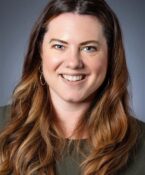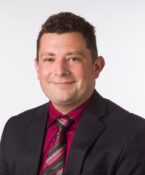UNTHSC assists law enforcement to reduce prostitution, crime rates
After two-years of research that included enforcement operations targeting prostitutes, the Dallas Police Department (DPD) is seeing the benefits of their innovative new approach of going to the streets to provide comprehensive services and a complete exit strategy for those seeking a way out of prostitution. Data evaluated at the University of North Texas Health Science Center has not only shown the Prostitute Diversion Initiative (PDI) is getting prostitutes off the streets, it is lowering crime rates in areas frequented by prostitutes along Dallas’ I-20 corridor.
Profile of a Prostitute
Surprising data reveals of the 371 adult prostitutes contacted as part of the Dallas PDI over the last two years, 54 percent tested positive for a sexually transmitted disease, with the most prevalent being syphilis, said Martha Felini, PhD, assistant professor of epidemiology at the Health Science Center School of Public Health. Of the truck stop prostitutes tested, about 30 percent had the disease, similar to the statistics found in underdeveloped countries. Almost half of the prostitutes were high school graduates or had higher education, and 54 percent reported having a mental health condition, with over half of those reporting having more than one.
Victim vs. Criminal
The PDI’s ultimate goal is to change the way law enforcement and other institutions approach those involved in prostitution.
“The purpose of the PDI is to give these victims a choice,” Felini said. “By bringing resources to the streets we’ve learned these women have suffered a lifetime of trauma and their drug addictions are helping them cope with co-occurring mental health conditions. Should those eligible opt for treatment in lieu of jail, they can get immediate and appropriate care that will give them a fighting chance at recovery and a new life.”
Results show that 60 percent of those eligible opted to go into treatment. With 23 people completing the initial phase of the treatment program, 65 percent of these remain abstinent and in supportive care services with no subsequent arrests in Dallas County.
Continuing Research
“As the PDI enters its third year, we anticipate seeing the impact of the program over the longer term,” Felini said. “In other words, will those successes in the first year continue to remain off the streets in two years? The statistics thus far indicate that the initial phase of the treatment is critical, but challenges remain in defining success in this migratory population. Part of this equation for determining success will become more demonstrable as the PDI expands its collaboration to other cities.”
This year, with the collaboration of the UNT Center for Human Identification, a High-Risk Potential Victim’s DNA Database will be implemented into the PDI , the first of its kind in the nation. Given that prostitutes are 18 times more likely to be murdered than women of similar age and race, this database will provide law enforcement a forensic tool to aid in post-mortem identification of victims and advocate for the prostitute in finding his or her killer. In addition, it can help provide closure to the victim’s families searching for missing loved ones.
From Facts and Figures to Real World Results
Atlanta, Las Vegas, Montreal and South Korea are looking at the program and have contacted the DPD for more information on the PDI.
“In order to help establish a program in areas outside of the United States, we will have to look carefully at cultural differences to obtain the greatest success,” Felini said. “The PDI demonstrates a respect for women’s rights and recognition of mental health conditions as treatable. But many countries have a different perception of women, and those with mental health conditions are ostracized.
“The challenge we face today is humanizing the data we have analyzed. Most people are unaware of the prostitute population and believe that those individuals ‘get what they deserve.’ Regardless of your position on prostitution, information about this population is important to our understanding of mental health, cancer and infectious disease, all which affect the general population. We cannot afford to continue ignoring this marginalized group,” Felini said.
The Health Science Center will continue to evaluate the program as it expands and is implemented by other cities. Each year, a report will be published revealing the compiled data. For information on future PDI developments, visit http://www.pdinewlife.org/, or the Center for Community Health at the Health Science Center.





Social media